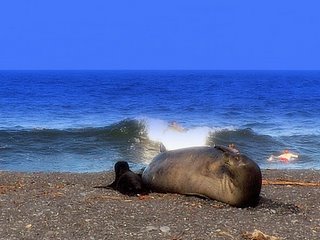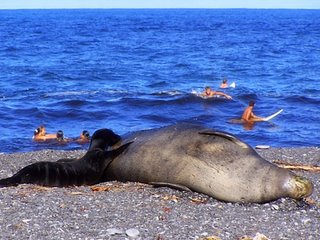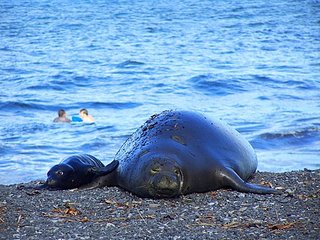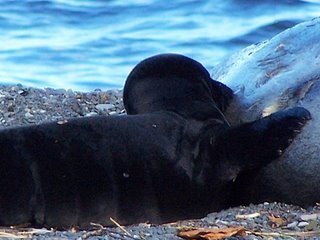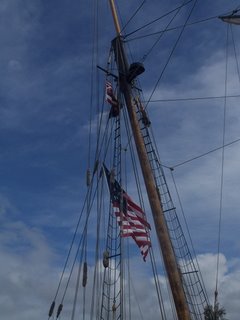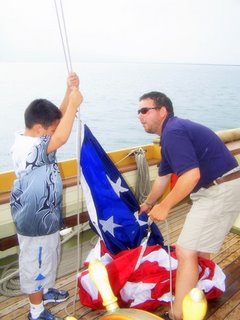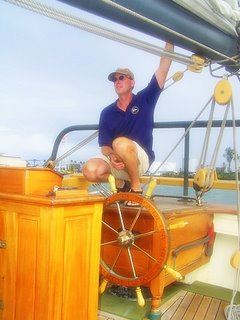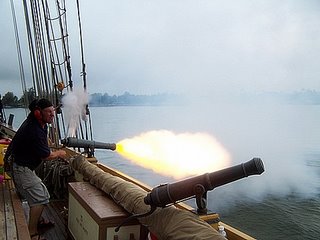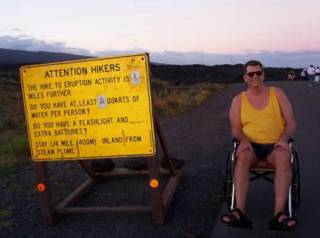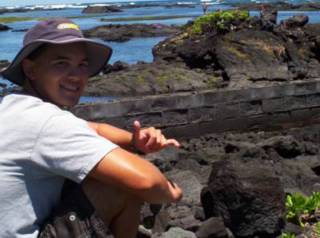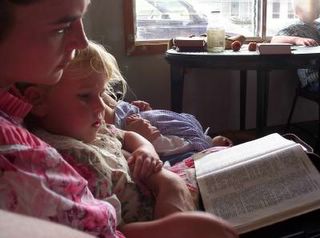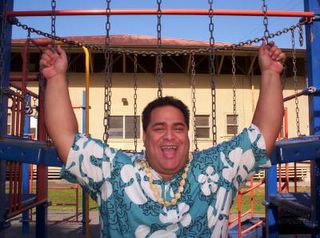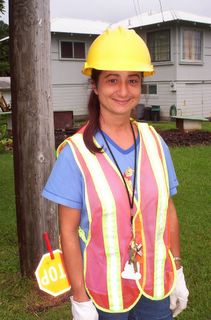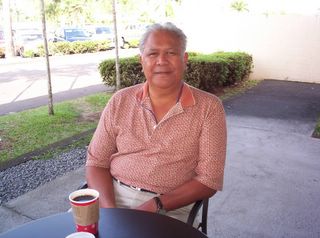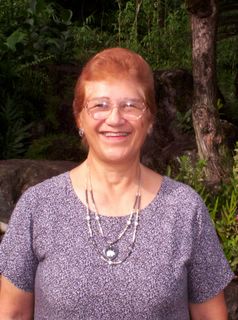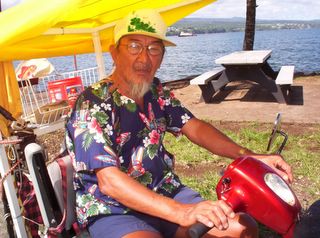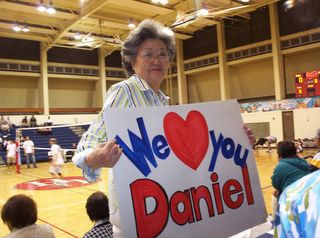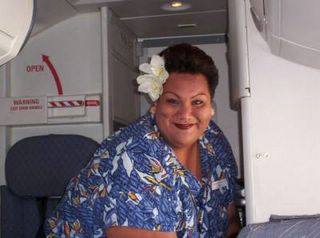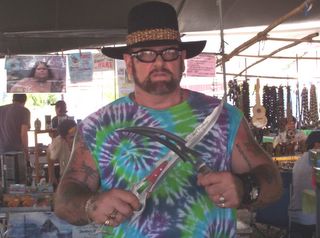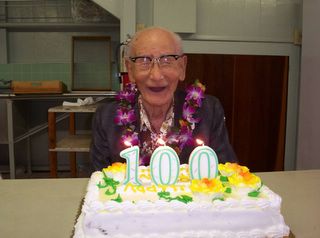
The epic life of Tsugio Nishimura
Local man is one century old
By Karen Welsh
Tribune-Herald Correspondent
It was 100 years ago that Tsugio Nishimura took his first breath of life. He was a healthy boy with a zest for life.
And, he's still living it to the fullest.
This pleasant elderly gentlemen has a sharp mind and is still able to get around with the use of a walker. He said the key to a healthy life is to not overeat and keep away from doctors.
However, when a person has to go for a medical checkup, Tsugio recommended joking around with the physician.
"Each time I go for an appointment, my doctor says I'm doing good for my age," Tsugio said with a laugh. "I kid him and tell him he always says I look good for my age."
His full-time caregiver, Jesse Caro, said Tsugio is always making him laugh.
"He is a comedian," Jesse said. "When members of my ohana asked what was the secret of his long life he replied, 'Don't Die.' He said it. It's a joke, but I believe it because he's still so strong and smart."
Having a sharp wit is an asset to his overall health, and his active mind really comes in handy when Tsugio faithfully meets with his Shoukai Haiku Group once a month at the Taishoji Soto Mission on Kilauea Ave.
Once there, he is the master or "sensei" of the group, teaching them the fine art of creating haiku poetry. Tsugio joined the class in 1933, but soon showed a gift for the short verses aptly describing seasons and objects. To date, he has published three books of the popular poetry.
"Haiku is very difficult to compose," Tsugio said. "Oh, it's one of the best things in my life. The more I know about it the more I have to learn. It's very interesting."
At the last meeting, his students prepared lunch and a birthday cake to honor his milestone birthday. Each student also wrote a haiku for the occasion.
"In essence, my haiku says he has lived the way of haiku for 100 years and now we have an end of the year gathering," student Leanne Kuki said.
As the sensei, Tsugio took time from the celebration to make corrections to the gift of words, and then discussed the changes with the class before cutting the cake.
"He makes the haiku better," said the Rev. Shimryu Akita. "Not only does he make better words, but better phrases."
Perhaps Tsugio's wisdom is derived not only from a long life, but a life well-lived. And, although he's lived 36,500 days on the earth Tsugio has found it's important to take each day as it comes.
Tsugio said the young people of today should heed his advice and live by the code of one Japanese word --NinTai -- meaning adhering to a course of action, belief or purpose without giving it away. The word embodies persistence, tenacity, steadfastness and patience. In a nutshell, it means "never give up."
It is the motto by which Tsugio has lived his long life.
His epic life started on December 4, 1904, in the district of Tamana in Kunamoto, Japan. He was the youngest son of eight children was born into Mantaro and Sugi Yosinaga's family.
Tsugio grew up without modern conveniences in a poor farming family. Faithfully he completed his chores each day, including cutting the grass with a sickle each morning before he left for school. As a young child his family didn't have any clocks, so he learned to tell time by the regular passing of the daily trains.
When Tsugio was in his early teen years, word arrived from his older sister, Taki and her husband, Mataichi Nishimura living as plantation workers in East Hawaii that they were childless and desiring someone to carry on the family name. Because Tsugio had older brothers and no chance of inheriting the family farm in Japan, it was decided the barren couple would adopt the young teen and bring him over to the Big Island.
Immediately the paperwork was filled out and Tsugio changed his last name to honor Mataichi and Taki. One requirement for immigrants during that time period, however, was a long five year waiting period after the adoption was legally registered before the adoptee could make the trip across the ocean.
After the endless wait, Tsugio finally arrived to start his new life on November 23, 1923.
And, he never looked back.
Tsugio immediately entered Hilo Boarding School on Haili Street to learn English. Once there, Tsugio was not allowed to utter a single word of Japanese.
"On Sundays I would try and talk Japanese with the other boys from Japan," he said. "But, we were caught and sent to chop wood as punishment."
Besides attending classes, the young Japanese man worked on the small farm associated with the school. His only complaint during his five years at the school was the food. In the morning the young men were served two slices of bread and a glass of buttermilk. For lunch they ate salt salmon and poi.
"I learned how to eat poi," Tsugio said. "I had no choice but to like it."
Tsugio said the amount of food provided wasn't enough for growing bodies.
"It was hard, very hard," he remembered. "We were always hungry. Sometimes the bananas would come on and we would help ourselves. That was a big help."
Tsugio finally learned enough English and in 1925 he began working for the von Hamm-Young Co., pumping gas for $40 a month.
The young Japanese man proved to be a hard worker with a strong work ethic. In 1927 he was promoted and became the first commercial refrigerator and radio salesman to cover the entire island.
At the "old" age of 29, Tsugio married Kaoru. Their first home was a "Nagaya," a cheap apartment that only had a two burner hotplate in the kitchen and shared bathing facilities.
After six months, the couple moved to a tiny one bedroom apartment in Waiakea Houselots and finally to a home that cost less than $2,000. During this time, the babies began to arrive. There were four children in all. This was a delight to Taki. As the grandmother, she would take a one month leave from the plantation where she worked to help take care of the newborns.
The second son, Paul, said he dad was a man of strong character and he made his children tow the line.
"My father is easygoing now, but when we were growing up he was extremely strict," Paul said. "All of our homework had to be done on time and he expected us to go to bed at a certain time."
The Nishimura family life was almost disrupted when the Japanese bombed Pearl Harbor. Because of Tsugio's birthplace, he was required to go to an internment camp on the mainland. A plea from his boss at von Hamm-Young Co., saved him from making the dreaded trip.
World War Two came and went. The time for nightly blackouts was over and many local businesses were struggling to exist. It wasn't long before Tsugio was laid off from work. It was then he decided he needed to own his own company in order to secure a strong financial future for his family.
In March 1946, Tsugio went into business with a partner selling parts for appliances and radios on Kamehameha Ave. Although they were open for business, the grand opening date for "Modern Appliance" was set for April 1. However, an early morning tidal wave wiped them completely out.
His son, Paul, was only 11 years old at the time, but remembered the day. Luckily, he said, the store had very few parts in stock so the financial losses were minimal that day.
"It was right after the war," Paul said. "There were no appliances they could buy because all the factories were being used for the war effort."
The psychological impact was greater, because the big wave was not seen as a "good omen."
However, Tsugio and his partner pulled it together and moved their business to Mamo Street. Soon, the appliances started coming in and business picked up. Eventually, Tsugio bought out his counterpart. Everything was going well until 1960, when another massive wave hit the bay.
By that time, Paul had graduated from the University of Hawaii in Manoa in 1957, and joined his dad in the family business.
"Warnings were given, but we were in Pahoa taking care of my grandparent's home while they were in Japan," Paul said. "We came into town the next morning and went to the top of Mamo Street. Hilo was impassable. We saw the two story building that sat across from Modern Appliance was in the middle of the street and was facing our store, which was still intact and on its foundation."
Once Tsugio and Paul were able to get inside the store they found all the merchandise jumbled and piled up in the back of the store.
Everything was ruined and the financial losses were severe because they didn't have any insurance. Because of Tsugio's tenacious lifestyle, they decided to start over again from scratch.
Not long afterwards, the father and son team decided to move to higher ground, however there was no supply for the demand of other business owners that were wiped-out during the disaster. They had to wait for nine years before a property became available on Kilauea Avenue, where the store remains to this day.
And, this mom and pop store is still a success because Tsugio demanded fair and personalized service for all customers.
"Dad taught us to have honesty with a customer," Paul said. "It was something he practiced. We would all get a whack on the head and chewed out if we didn't do it."
During this time, Tsugio became a United States citizen and strong community leader, serving various organizations, including the Japanese Chamber of Commerce. He even learned and loved to play golf.
Time kept marching by, however, and Tsugio retired from the business in the mid 1970s. Over the years, he has taken several trips to Japan by plane -- something he never imagined as a young man.
"I never thought there would be anything like airplanes," Tsugio said. "As a child, I would have never thought of flying over the ocean. It's a wonderful trip."
His native country took notice of this savvy businessman and civic leader. Tsugio received the coveted Imperial Award from the Emperor of Japan in 1995. He traveled to the Japanese Consulate in Honolulu to accept the award.
"To get an award from the Emperor himself is quite an honor," Paul said. "It was an important award for his contribution in building relationships between Japan and the United States, specifically Hawaii."
Unfortunately, after 68 years of marriage, Tsugio's beloved wife, Kaoru, age 90, proceeded him in death a couple of years ago.
Today, Tsugio finds joy and contentment in his children and grandchildren. His oldest, Sidney, is 70-years-old and already retired. Paul, age 69, will soon be heading in the same direction. Tsugio's daughter, Ellen, age 64 is a school teacher on the mainland, and Clifford, age 56, is the youngest.
"They are all doing good," Tsugio said. "I am very, very proud of them."
Looking back over his life, Tsugio is thankful he was able to come to the islands to live.
"I'm very glad I came to Hawaii," he said. "There is no other place better than Hawaii. It's the best thing I did in my whole life. Hilo is better than Kona, better than Honolulu. It's just wonderful."
For 100 years Tsugio has lived life to the fullest, and the truth be told, he's a big part of East Hawaii's history. In fact, he is living history. Perhaps that is why he lightly taps his chest and repeats the word "NinTai, NinTai." He has, indeed, persevered one day at a time.
"It's a long time living to be 100 years old," Tsugio reminisced. "It's been a good life"

